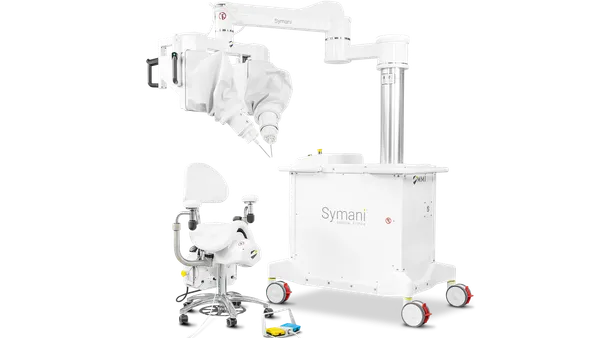Dive Brief:
- BrainsGate's neurostimulation device to increase blood flow to the brain and reduce disability in stroke patients did not demonstrate effectiveness in scientific evidence submitted to the FDA in a premarket application, an advisory panel to the agency concluded after a full-day meeting Friday.
- The neurological devices panel decided by a 7-3 vote, with three abstentions, that the benefits of the treatment did not outweigh the risk to patients in the BrainsGate submission. Reasonable assurance of effectiveness was not demonstrated, the panel also determined in a 7-3-3 vote.
- Panelists who were unconvinced of the device's effectiveness took issue with changes to the pivotal trial late in the study that they said could have compromised outcomes. However, panel members were unanimous in their vote finding reasonable assurance of the device's safety.
Dive Insight:
Israel-based BrainsGate, which attracted early investment funding from Boston Scientific and Johnson & Johnson, developed its neurostimulation device as an option for patients who are ineligible for currently available treatments for severe ischemic stroke, or who arrive at the hospital after the treatment window has closed. These patients face the potential for severe disability.
Current therapies involve intravenous drugs or endovascular thrombectomy to remove the clot. The success of these approaches, however, depends on getting to the hospital quickly.
Stroke patients need to be treated within 3 hours to 4.5 hours of onset for drug therapy and 6 hours to 24 hours for thrombectomy. Potential benefits diminish as time passes, increasing the risk of intracranial hemorrhage. The guidelines leave just 2% to 3% of people who come to the hospital 8 hours to 24 hours after a stroke eligible for thrombectomy.
The BrainsGate device was intended to offer an alternative for those seeking help 8 hours to 24 hours after suffering a stroke. The neurostimulator is implanted in the hard palate of the mouth and activated by an external system that delivers electrical pulses to the sphenopalatine ganglion, a group of nerve cells linked to the trigeminal nerve. Patients receive 4 hours of treatment daily for five days, then the device is removed.
An option for stroke patients who arrive at the hospital after the timeframe for current treatments has passed is clearly an unmet need, several experts on Friday's neurological devices panel said.
"We are desperately looking for something to give these patients outside a window. Most likely it will be broadly applied, but that puts the bar high," said panel member David Kennedy of Vanderbilt University Medical Center.
The BrainsGate treatment, however, hit a stumbling block when the pivotal trial for the device did not meet its primary endpoint. The research, published in 2019 in The Lancet, showed the neurostimulator is likely to improve functional outcome in patients but results fell short of statistical significance.
In documents posted before Friday's meeting, FDA outlined several concerns about the study including an imbalance between treatment groups that occurred when investigators were unable to successfully implant the device in some patients as well as inaccuracies found in a model used to assess the study results.
FDA expressed unease about significant changes to the study design and to the device itself late in the course of the research. Many of the changes were implemented in the last year of the study after more than 1,000 patients were randomized, the agency noted.
"A change in design and clinical use during a study may affect effectiveness and safety," FDA said. The agency also said it was concerned that risks associated with implantation may have been under-represented in the clinical studies.
It was the late modifications to the trial design that most troubled several of the doctors on the panel. They said they would have liked to have seen stronger evidence of effectiveness, and some called for a followup study to be conducted. "It's a little unsettling that it isn't more robust," said Earl Ray Dorsey, a panel member from the University of Rochester.
FDA will now review the advisory panel's feedback before deciding on the next steps. The agency often takes the advice of its advisory committees, though is not bound to do so.










